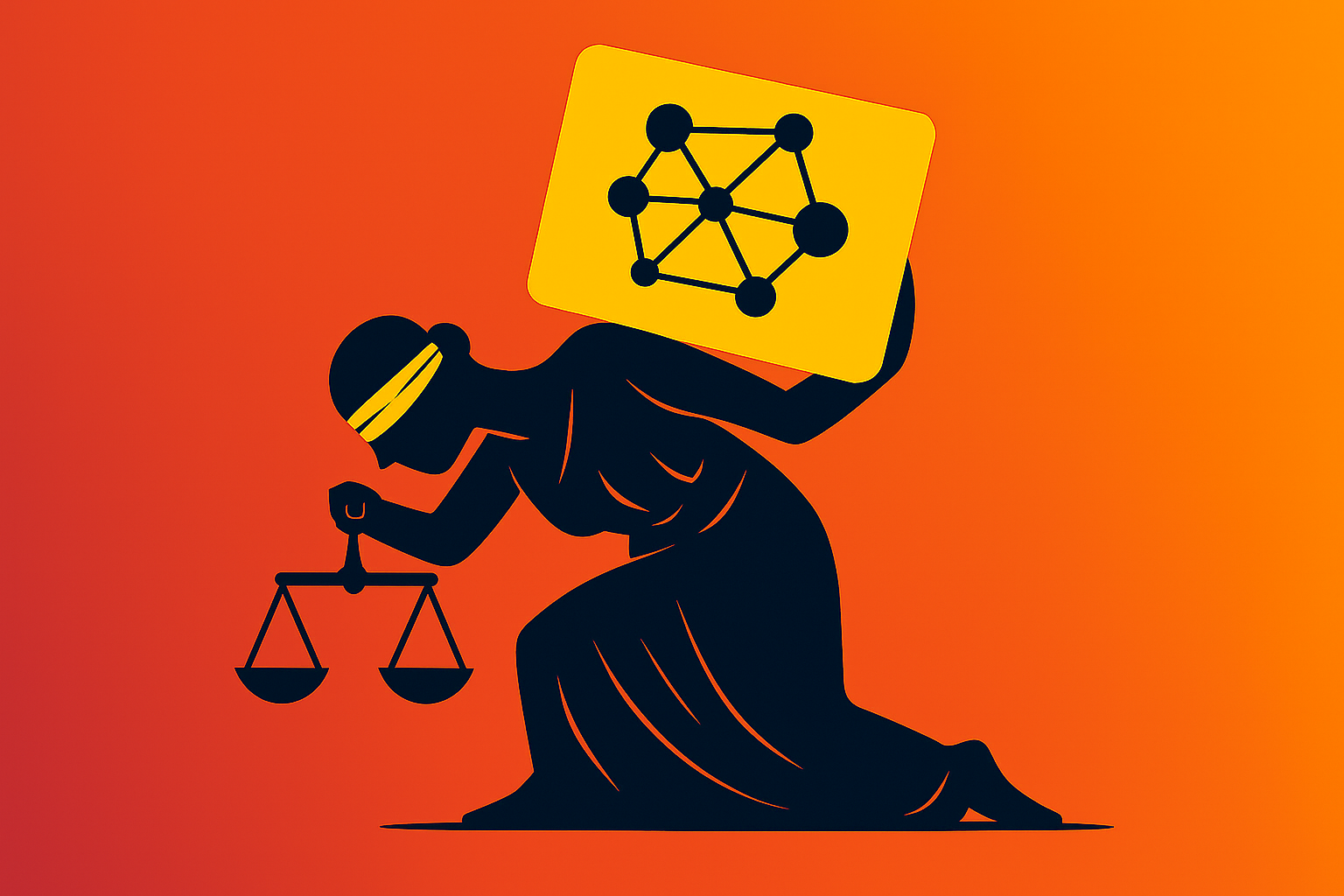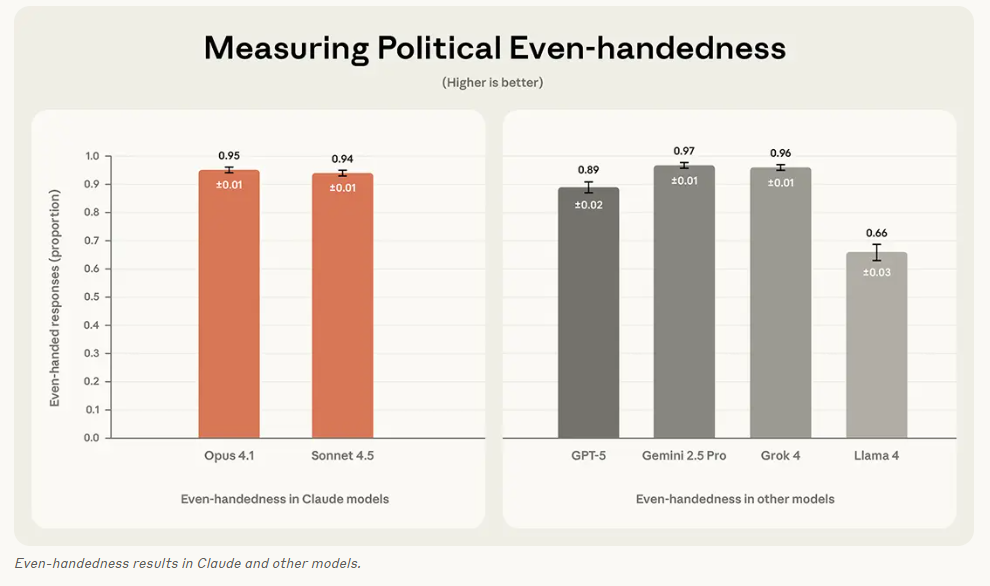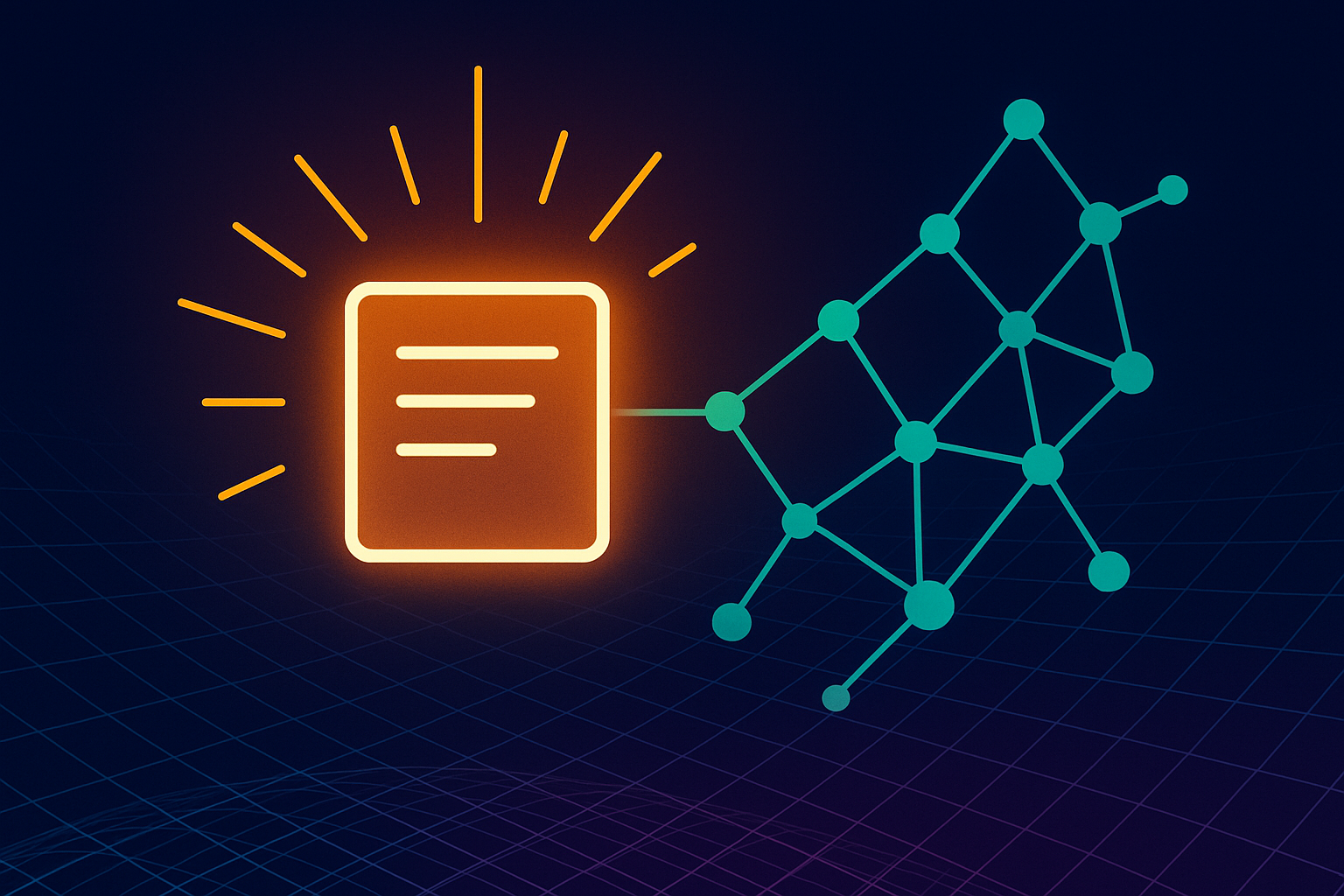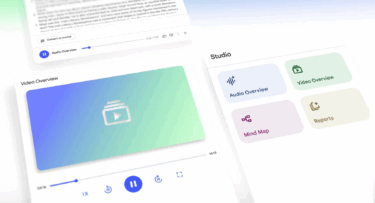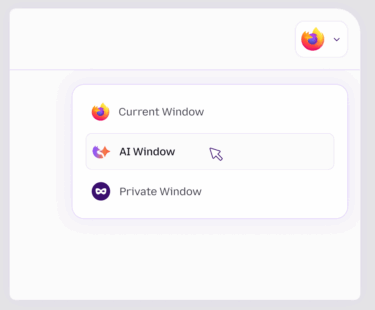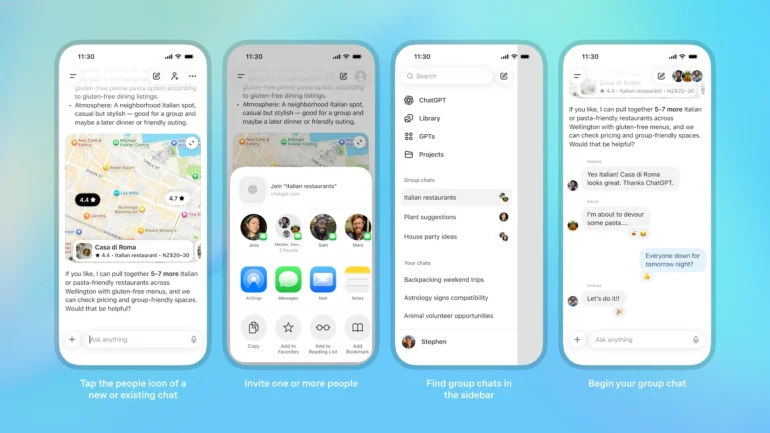Yann LeCun accuses Anthropic of regulatory capture. The dispute centers on an AI-driven cyberattack that Anthropic says happened with almost no human oversight and posed a serious cybersecurity threat. After the company published its findings, US Senator Chris Murphy called for tougher AI regulation.
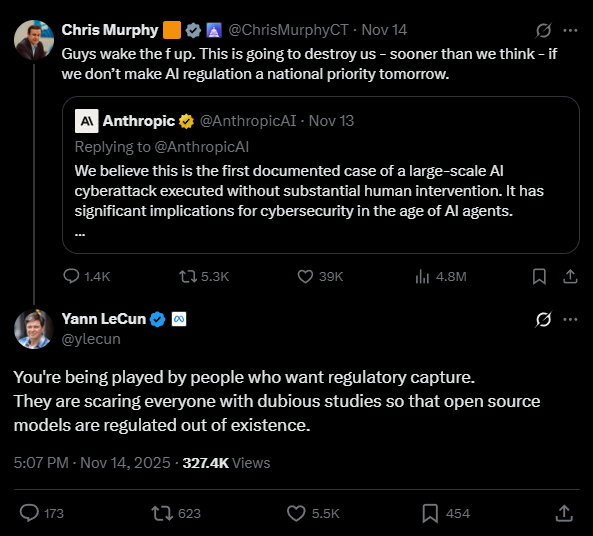
LeCun, who reportedly is preparing to leave Meta, pushed back on the political reaction and accused companies like Anthropic of using questionable studies to stoke fear and push for stricter rules that would disadvantage open models. In his view, the goal is to shut out open-source competitors.
Trump's AI advisor, David Sacks, has also accused Anthropic of using what he called a "sophisticated regulatory capture strategy based on fear-mongering."

